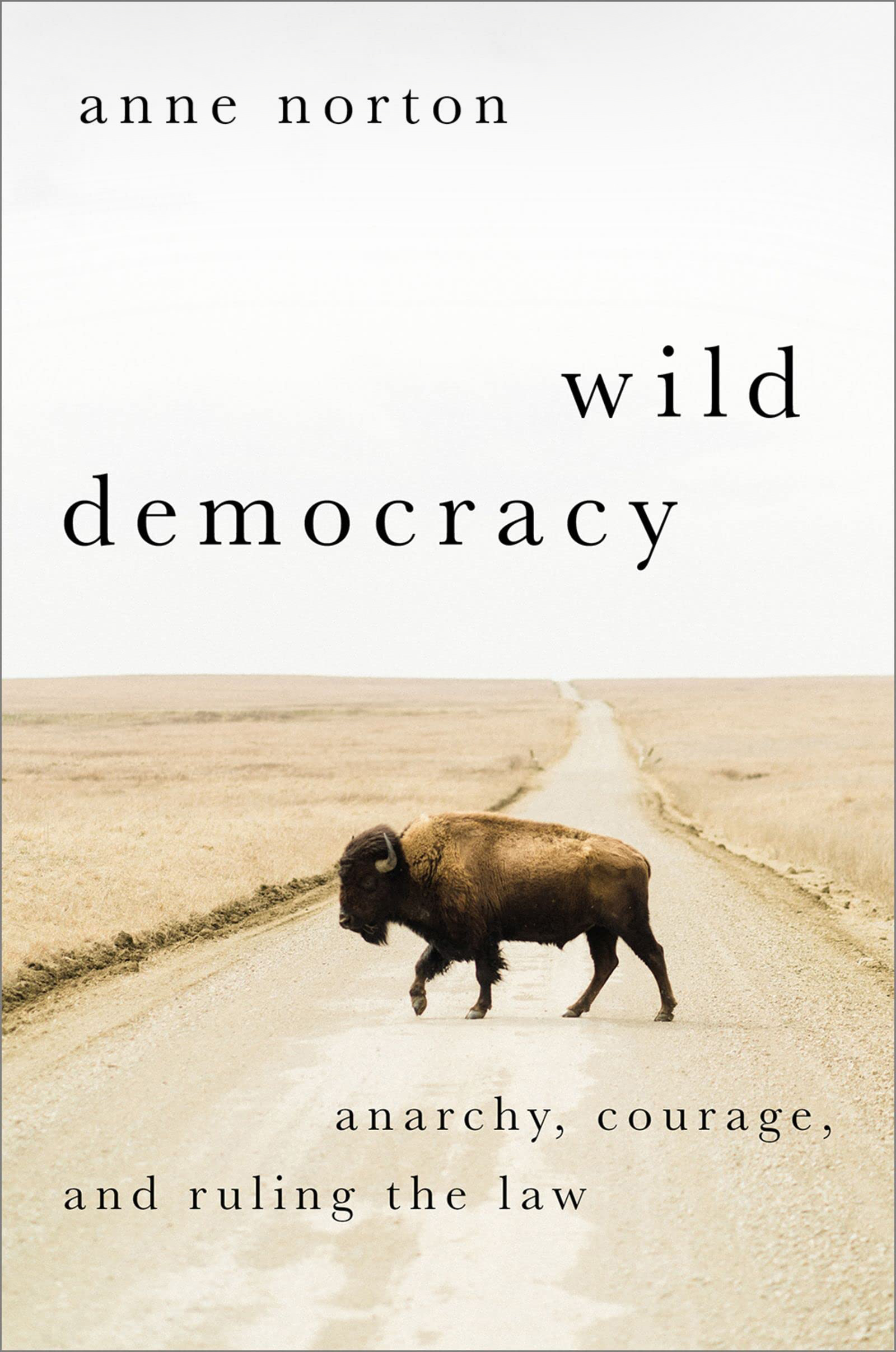In Support of a Wilder Democracy
A new book from Anne Norton, Professor of Political Science, advocates for a system that embraces self-reliance, freedom, and courage.
On the cover of Anne Norton’s Wild Democracy: Anarchy, Courage, and Ruling the Law, a solitary bison walks across an empty road amidst a vast plain. For Norton, Professor of Political Science, the image is perfect for her new book.

“I love this cover photograph because it depicts this big, powerful animal that is no trouble to anyone. There’s a road, but the bison is not following it. And we know that where there is one bison, there are others nearby,” says Norton, who has published seven books, including Leo Strauss and the Politics of American Empire and On the Muslim Question. “The image calls up both the independence, self-reliance, and transgression of anarchy, and the solidarity with others needed for a wild democracy.”
Norton’s book advocates for a wilder democracy than the one America is currently working toward, she says, one where people rule themselves, trust one another to know what’s right for their own lives, and prioritize courage over civility, justness over law, anarchy over authoritarianism. Chapters offer critiques of liberalism, conservatism, and the rule of law, while advocating for anarchy, independence, taxes (yes, taxes), and natural rights.
The word anarchy derives from the Greek for “having no ruler,” yet the anarchy that Norton advocates for does not exclude government. “I believe people can govern themselves, that they can choose how they do it, and that they will do that in many different ways,” she says. “I believe the more power you distribute throughout the polity and the more that gets into the hands of individuals, the better. Fundamentally the government is the choice of the people who are living with it. It could be highly centralized or decentralized.” She prefers decentralization, she says, because it gives more power to individuals.
Norton notes that in a wild democracy, individuals can and should decide when a law is unjust and choose not to enforce it—for example, the past Jim Crow segregation laws or current laws banning women’s reproductive health choices. Secondly, she believes that government should be easily changeable to ensure that people truly consent to it, with a simpler process for removing leaders who no longer represent the people.
America has never been a true democracy, says Norton, but rather a country striving toward democracy and increasingly threatened by rising authoritarianism. “Authoritarianism is a phenomenon on both the left and the right,” she says, commenting that while the right’s may be more straightforward, liberals practice authoritarianism in a more “clinical way,” making many rules because “they don’t trust people to live their own lives.”
“Ultimately,” she adds, “I think too many Americans are afraid that people are going to do stupid and evil things, but I think they’re also afraid that people will do daring, brave, and revolutionary things. I think we should cowboy up and take the risk.”
The faith that this book—and Norton—place in the natural goodness of people offers a hopeful message in a time that can feel pessimistic, divided, and defeated. “We totally underestimate our abilities as humans to do the right thing,” she says, adding that she hopes her book can inspire a democracy that makes space for individualism, for Americans to be more courageous and experimental—and, perhaps most importantly, more joyful.
Norton is working on another book, this one about property, its promise, and its perversities.


